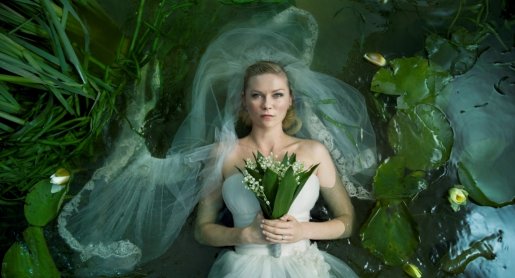Cannes: Champagne and Controversy


Cannes 2011 is widely held to be a classic vintage. It had a broad spectrum of satisfying cinema, stylistically eclectic and as culturally diverse as Cannes owes itself to be. But there is something entertainingly aristocratic and arbitrary about Cannes too. Why were certain films in competition in the first place and not others? Why did the equally diverse jury of a handful of people opt for this combination of prizes and not another?
The Origins of Life and the End of the World
On the night, top prizes were awarded to films from the US, Belgium, Turkey, Israel and France with Terence Malick taking the Palme d’Or with The Tree of Life. This film is a solemnly beautiful cinematic poem about the origins of life. It juxtaposes spectacular pre-historical images with an evocative exploration of family, memory and loss. Jack (Sean Penn) casts his mind back to his boyhood with his brothers in fifties Texas and his particularly fraught dialogue with his father, a disciplinarian by the name of Mr O’Brien (Brad Pitt). Despite this particularly tantalising piece of Hollywood casting, Malick is no conventional multiplex filmmaker. He eschews story structure for oniric evocation and it is his enduring desire to capture an elusive and spiritual atmosphere that is his signature; it sets him apart as a true cinematic author. This is why he is particularly admired in France.
As if to return the compliment, a French film The Artist is an homage to the heyday of Hollywood, a silent movie in beautiful black and white. Jean Dujardin picked up the best actor prize for this totally enjoyable and simple tale of a Gene Kelly-type handsome hoofer who is confronted with the advent of talking pictures. Pure pleasure.
While Malick’s magisterial opus explores the origins of humanity, Lars Von Trier’s Melancholia charts the end of the world. In an equally poetic and spectacular opening sequence, we see planet Earth obliterated by a much bigger star before tracking back a few days earlier, to a quite differently troubled family. We witness a classy but dysfunctional wedding and the contrastingly anxious personalities of two sisters, Justine and Claire, played by Kirsten Dunst and Charlotte Gainsbourg. Von Trier courts controversy naturally and like no other, but usually it is calculated and has to do with his surprising filmmaking choices and strikingly ‘original’ observations: he uses his undeniable talent to shock, sometimes seemingly gratuitously.
'Bad-Boy Lars'
This time the film itself did not overly upset anyone; that was left to an unscripted stink bomb at the press conference. In a moment of ill-judged juvenile playfulness, Von Trier led himself into a rhetorical dead-end, an odd meander through his regrets at not, after all, being Jewish, and showing sympathy for a certain Mr Hitler. His fellow artists squirmed and Cannes spluttered as if choking on a bad bubble of champers. Just as the head of the IMF was languishing in a New York prison and Mr O’Bama was imposing 1967 borders on Israel, Cannes’ Board of Directors was convened to declare bad-boy Lars 'persona non grata' for his faux pas and forbidden to engage in any further promotion of the film.
It was quite a state of affairs, a veritable Cannes of worms had been opened. Was this life sentence? It wasn’t clear. Was Melancholia, the film, also expunged from the competition? No, it wasn’t. Phew! Lars retreated to nearby Mougins and expressed contrition, echoed by his studio, Zentropa. Something like resolution —though certainly not redemption, it’s much too early for that— happened when Kirsten Dunst (pictured above) picked up the best actress prize. In her speech, she acknowledged the unique moment of a Cannes prize thanking them for keeping the film in competition. “It’s been quite a week”, she said. Indeed it had been.
Cannes invented Von Trier and Von Trier exemplifies what is the essence of the show-art-business of Cannes. Foreign Students’ Danish connections tell us that his next project is about female sexuality with suggestions of latent nymphomania. Hmmm. How can Cannes resist the promise of that? Answer in about two years.
Photo: CHRISTIAN GEISNÆS
Séamas McSwiney is our guest film correspondent and has been reporting for us directly from Cannes. He has decades of experience in film journalism, with work published in some top international publications.








